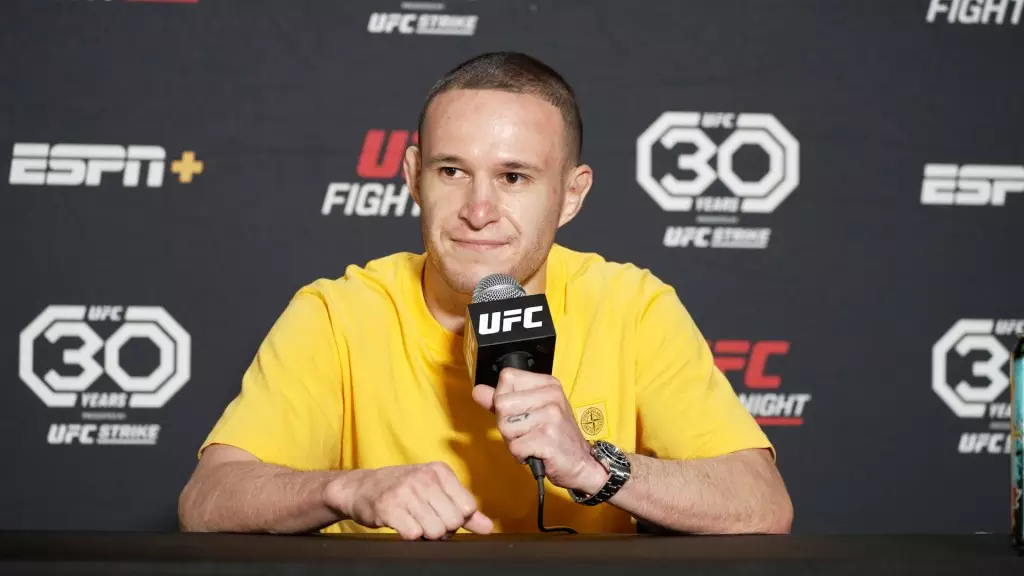The realm of mixed martial arts (MMA), and specifically the UFC, is notorious for its cutthroat nature. With fighters constantly vying for recognition and championship opportunities, the system that determines title shots often leads to controversies and debates. The upcoming fight at UFC 310, featuring Kai Asakura challenging Alexandre Pantoja for the flyweight title, has sparked significant discussion among both fans and fellow fighters. Notably, UFC contender Kai Kara-France has openly criticized Asakura’s immediate title shot, arguing that he hasn’t sufficiently proven himself within the organization.
Kai Kara-France, a seasoned competitor with a professional record of 25 wins and 11 losses, recently expressed his dissatisfaction with Asakura’s rapid ascension to a championship opportunity. Kara-France’s perspective is rooted in his experience, as he has had to navigate through numerous tough bouts and challenges within the flyweight division. After his impressive TKO victory over Steve Erceg at UFC 305, Kara-France felt poised to contend for the title himself. Instead, the UFC opted to bring in a newcomer, Asakura, for a title shot against Pantoja, a decision that seems to undermine the efforts of fighters like Kara-France, who have been grinding away in the division for years.
This situation raises critical questions about the criteria for earning a title shot in the UFC. Should a fighter’s previous accolades or their marketability weigh more heavily in the decision-making process? While an immediate title shot can bring attention and potentially lucrative pay-per-view buys, it can equally disillusion contenders who have worked tirelessly for their opportunities. Kara-France’s critique of Asakura’s lack of fights in the UFC before being granted a title shot encapsulates this dilemma. It shines a spotlight on the broader issue of how meritocracy competes with business savvy in professional sports.
While some may argue that Asakura’s entry with a championship opportunity signifies confidence from the UFC in his potential, it also places immense pressure on the fighter. Stepping into a title fight without having yet competed in the organization can lead to formidable challenges. Asakura must now demonstrate not only his combat skills but also his ability to handle the spotlight and expectations that come with a title shot.
Despite the controversy, Kara-France acknowledges that bringing attention to the flyweight division could be beneficial. With higher stakes and greater visibility, the fighters in this weight class may find themselves in enriched circumstances following UFC 310. Asakura’s opportunity could serve as a double-edged sword; if he can rise to the occasion, he not only vindicates the UFC’s decision but also establishes himself as a serious contender in the division. Conversely, should he fall short, it may further entrench the idea that earned opportunities count for more in competitive sports than sheer novelty.
As the MMA community prepares for the upcoming title fight, debates about fairness, merit, and opportunity will undoubtedly continue, illustrating the complex nature of this sport’s competitive landscape.

